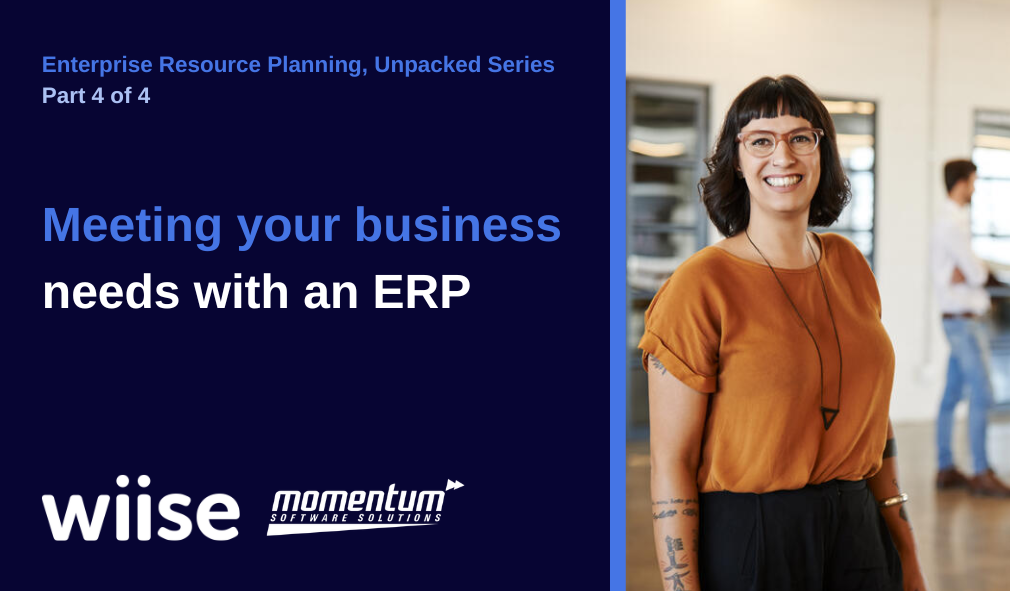The following article has been created by Wiise. View the original article here.
3 business needs fulfilled by an ERP
From reducing the time spent on repetitive manual tasks to giving business owners a clear view of their operations—implementing an ERP solution can help organisations achieve a range of outcomes related to people, processes, and data respectively.
However, on a broader level, there are three categories of ‘business needs’ that an ERP system typically fulfils for growing organisations.
1. Accelerating growth in the immediate term
An ERP solution can help organisations do more with the data that’s already available to them. Implementing an ERP can be thought of as business-as-usual, only faster and with far less data entry, paperwork, administrative tasks, manual approvals, or having to look for data in several places.
With information from every aspect of the business interfacing in one system, an ERP solution can make data more accessible, simplify processes and enable people working in fast-growing organisations to be more productive. Ultimately, this allows a business to grow at a faster pace than it would if its processes were tied to an outdated business solution or a patchwork of disjointed systems.
2. Setting up the foundation for long-term growth
The case for using emerging technologies such as artificial intelligence (AI), machine learning (ML), and Robotics in both finance and operations is becoming stronger every day. In fact, organisations today are using emerging technologies for mission-critical tasks, not as add-ons or afterthoughts.
While investing in next-generation technologies can deliver significant payoffs for businesses, being able to get their full benefit requires equally powerful computational and data analysis capabilities that modern ERP systems can provide.
3. Building resilience to be better prepared for critical events
ERP systems deployed on the cloud are both scalable and flexible. They allow businesses to operate with greater agility while an end-to-end, continuously updated view of core business processes allows business owners to identify both opportunities and risks at an early stage.
With built-in analytics converting real-time business data into the kind of business intelligence previously only available to large enterprises, growing businesses can feel better prepared to deal with uncertainty.
Being able to see risks beforehand allows key decision-makers to feel more in control as they navigate everything from compliance requirements to supply chain disruptions.
The case for modernising your ERP
While it’s true that implementing an ERP system can help organisations with one or all of the needs described above, it is important to recognise that not all ERP systems are made equal.
Older, on-prem ERP systems can be complex and fragile. They aren’t built to accommodate changing business conditions easily. They don’t always scale well to enable growth or support continuous innovation.
On the other hand, modern cloud-based ERP systems are both scalable and flexible. This means they help organisations realise business value both in the immediate term and in the long run. Equipped with mobile features and integrations, cloud ERP solutions allow businesses to operate with greater agility.
So, regardless of whether you’re looking to optimise current processes, leverage next-gen technologies, or build resilience into the DNA of your business, it’s essential that your ERP solution fulfils the following requirements:
- Robust features for accounting, operations, and beyond
- Integrates easily with new tools and technologies
- Cloud-hosted with powerful data analytics
- Enterprise-grade data security
- Regional banking, tax, and regulatory requirements
- A reliable platform supported by a local team
Need to evaluate your current system?
If you think it’s time to evaluate the strength of your current business solution and whether it’s still right for you, speak to one of our team members today.
They have the product knowledge and industry insight to be able to assess the unique needs of your business and help you make a case for ERP modernisation at your place of work.

